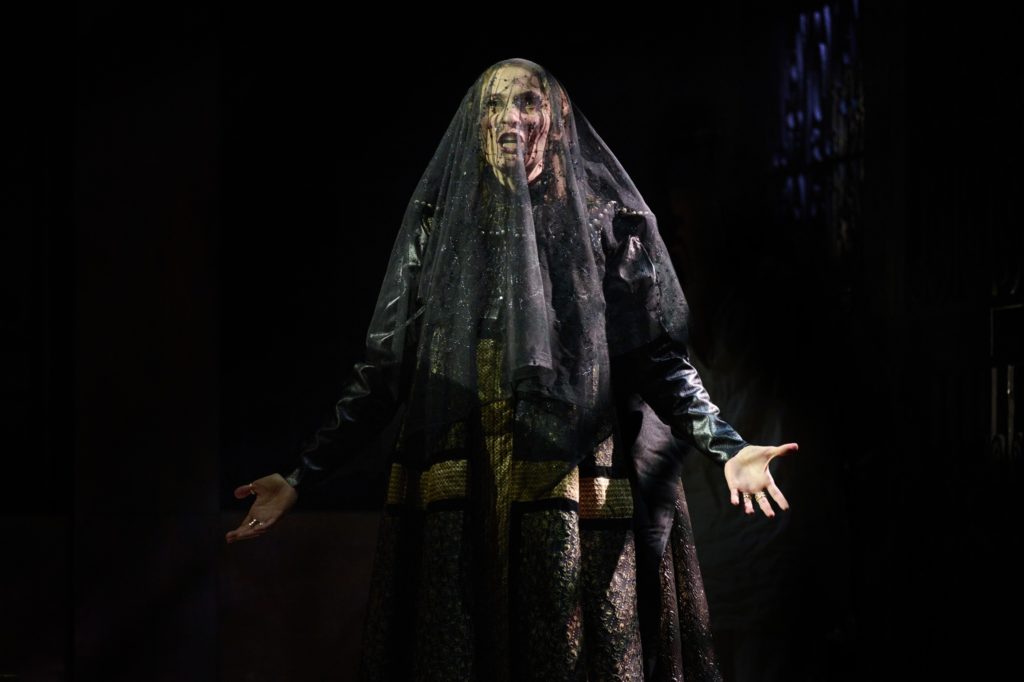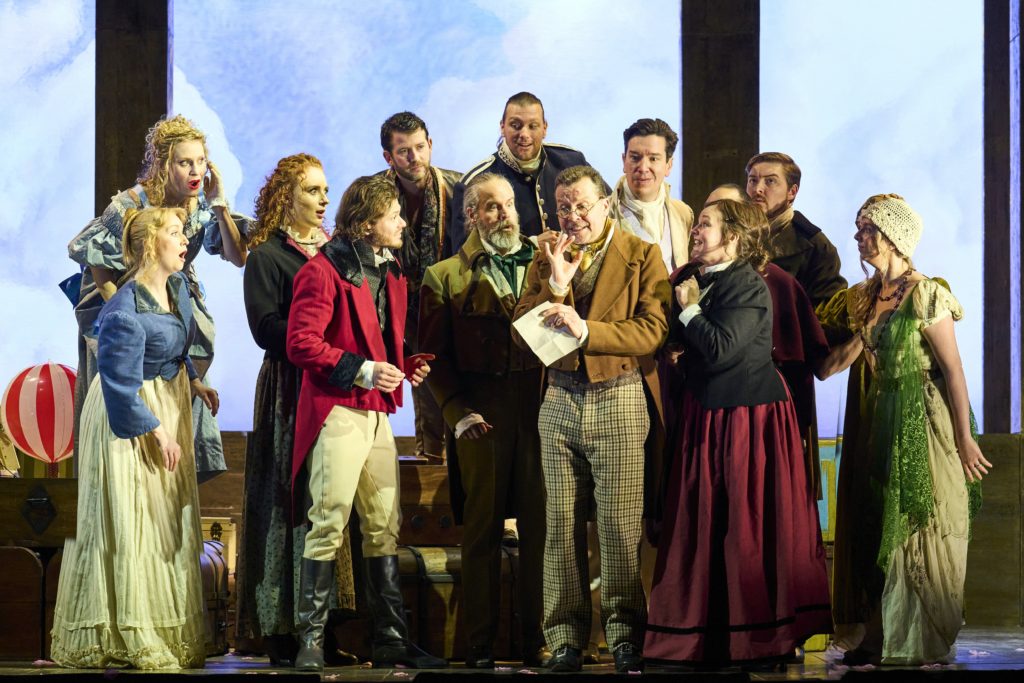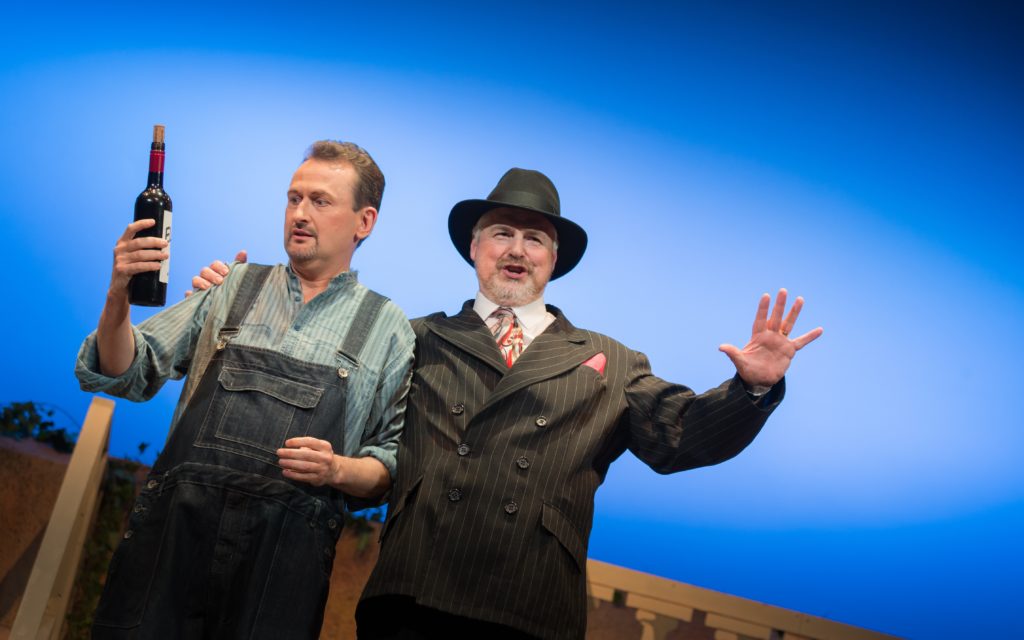
WITH spring in the air, a young man’s thoughts turn to love. Nemorino is the love-lorn peasant in Donizetti’s melodramma giocoso – let’s call it a witty farce – and the course of his true love is bound to run less than smoothly. So he looks to a love potion to fix his problems and finds himself in even deeper water.
That is the essence of Romani’s libretto, sung here in Ruth and Thomas Martin’s English translation. York Opera’s new production, in the hands of Chris Charlton-Mathews, making his directing debut with the company, provides just the tonic we all need as the sap begins to rise again post-pandemic.
The focus here is the con artist who supplies the potion (actually alcohol), the travelling medicine-man Dulcamara. Ian Thompson-Smith makes the role his own. Smarmy and smug, self-assured and spivvy, he is just what this production needs, given that it has been updated to the 1940s, with Italy desperately seeking to rehabilitate itself after the war. His baritone is firm, his diction is clear and his charisma never deserts him.
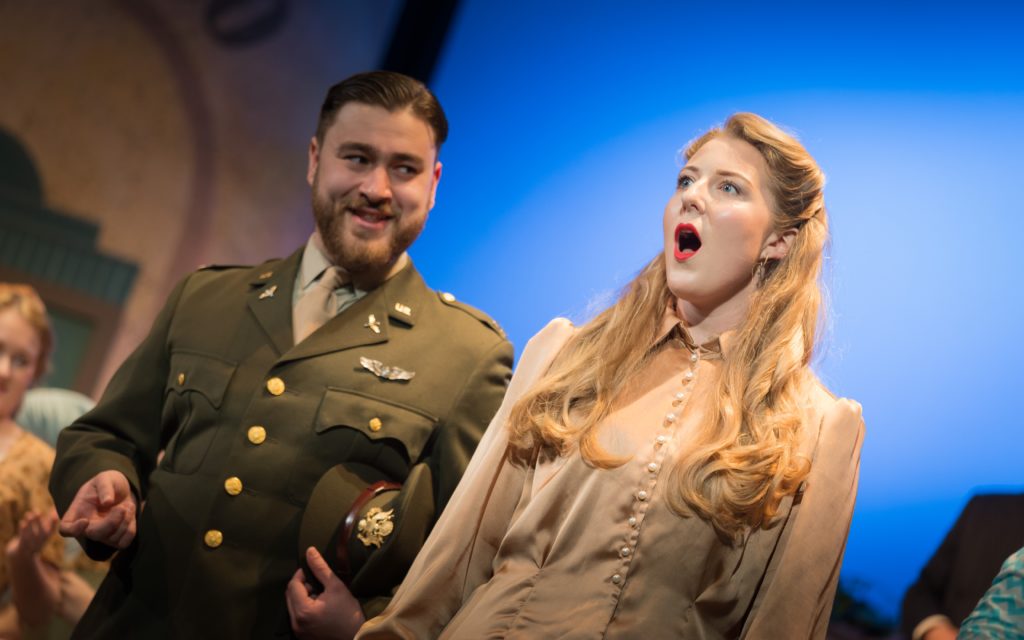
Naturally he has the down-trodden peasantry eating out of his hand; they have been through hard times. This includes Hamish Brown’s Nemorino, whose journey from self-doubt to amatory success is neatly managed.
Over the years, Brown has gradually acquired a confident stage presence and this is his best character yet. He provides the greatest pathos of the evening in his last aria – Una Furtiva Lagrima (A Furtive Tear) in the original – with eloquent phrasing.
The target of his affections is the Adina of Alexandra Mather, who makes an engaging transition from standoffishness to tenderness. Her coloratura is in good nick and at its best in the finale. Oddly enough, she is less well-focused in easier passages earlier in the show. But talent will out and she surmounts her difficulties.
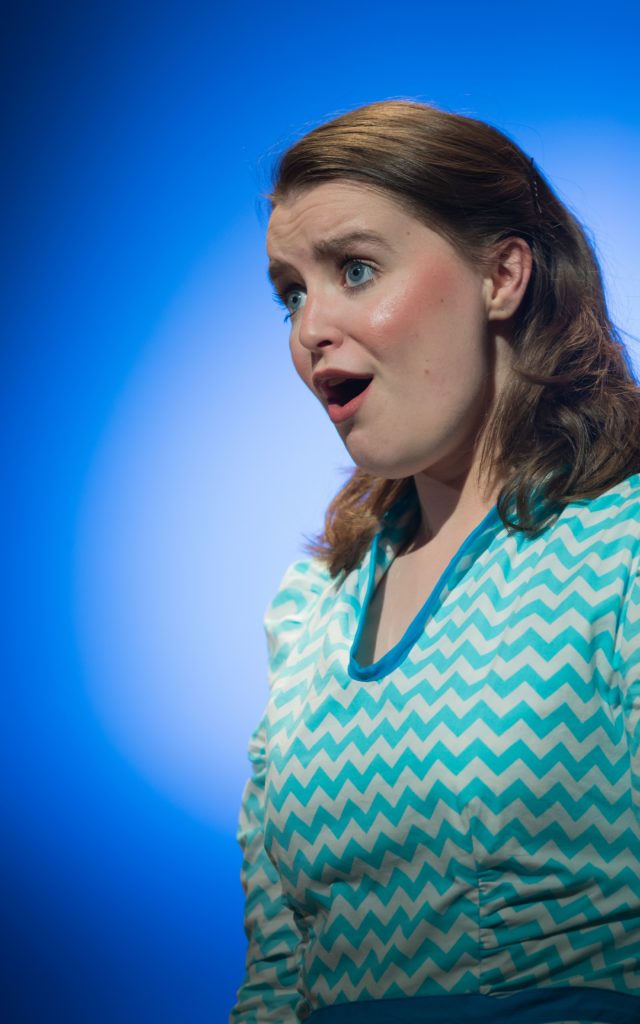
David Valsamidis brings a strong baritone to the role of Sergeant Belcore, leading a rag-tag platoon of GIs and posing as saviour of the wretched villagers. His acting is less fluent but he has potential. So too has Emma Burke, who makes the very most of her cameo as Giannetta. We may look forward to their return in future productions.
The chorus is relentlessly enthusiastic and brimming with bonhomie. They certainly take Donizetti’s catchy tunes to heart and sing as if their lives depended on it. Two cautions, however. There were several occasions on the first night when they raced ahead of conductor Steve Griffiths.
His beat was perfectly clear from within the auditorium, but perhaps his proximity to the stage makes his baton hard to see on stage. If so, he should raise his arms a little; if not, the chorus must pay more attention.
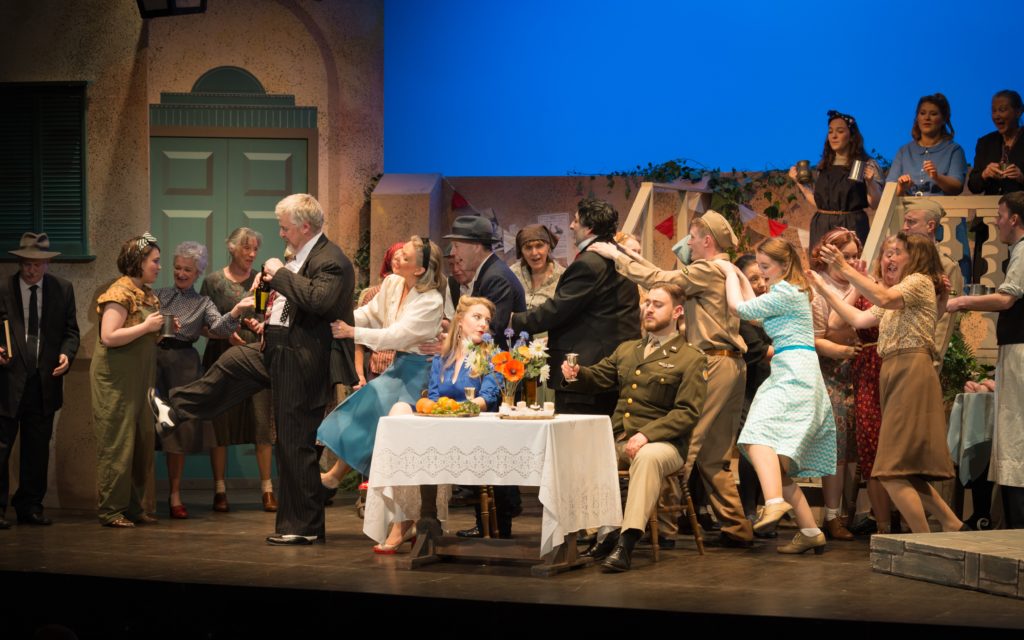
Secondly, it is an error on the right side to be involved, but when a soloist is performing, individual members of the chorus should not be reacting as characters in their own right. Group chorus reactions are fine, solo ones are distracting. The exception of course is when the chorus itself is in the spotlight, when choreographed unity is to be encouraged.
Griffiths keeps his small orchestra on its toes and it answers his every call. Highlights include some notable flute passagework, and a mellow bassoon accompanying Nemorino’s last aria. Rhythms are strong throughout and the spirit of the dance is infectious. Maggie Soper’s costumes, as always, are right in period: we know at once where we are without being told.
In general, Charlton-Mathews does an excellent job of marshalling his forces on this small stage. He just needs a touch more discipline in his chorus. But this is a company whose morale is definitely back in high gear, suiting the season perfectly.
Review by Martin Dreyer

